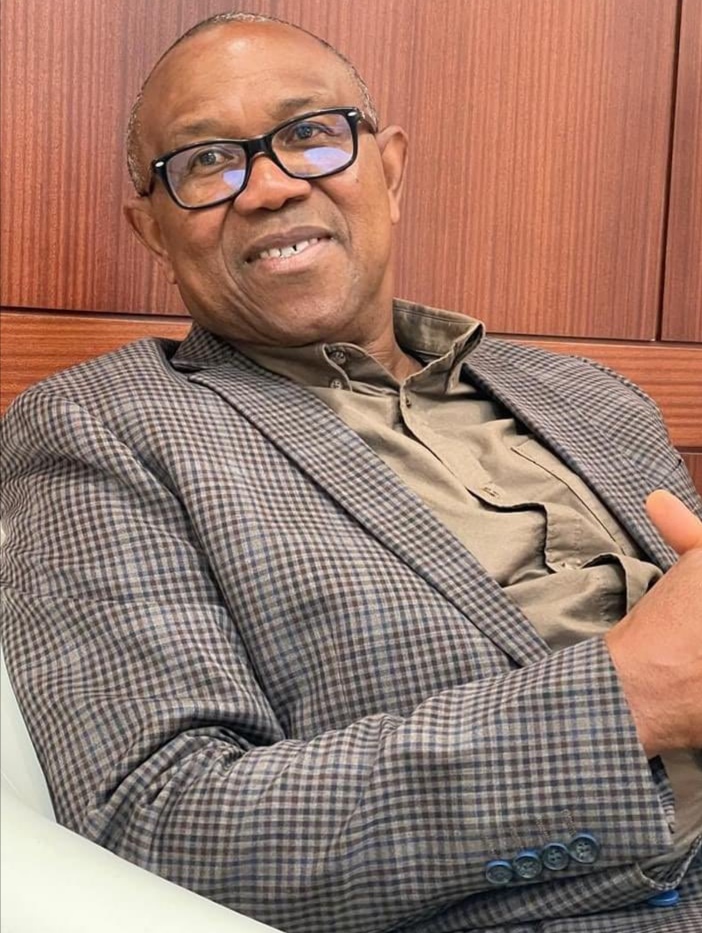Politics
2027: Peter Obi urges ADC coalition to zone presidential ticket to South

Former Labour Party presidential candidate, Mr. Peter Obi, has called on the African Democratic Congress (ADC) coalition to zone the 2027 presidential ticket to the southern region of Nigeria, citing the need for equity, unity, and national cohesion.
Obi made the appeal on Sunday in Ilorin, the capital of Kwara State, while speaking on the sidelines of the 2nd Annual Colloquium in honour of Associate Professor Abdulmumin Yinka Ajia, a former APC governorship aspirant in the state.
According to Obi, giving the South a fair shot at the presidency in 2027 would help foster national balance and address concerns of marginalization.
Former PDP Presidential candidates, Atiku Abubakar and Obi have both insisted that they will be on the ballot come 2027.
In an exclusive chat with Daily Trust at the event, Obi said “Why should we have a northerner again when we can easily allow the south to complete their tenure to promote unity and cohesiveness, and afterwards, our northern brothers can take up their eight years”.
To this end, the former Anambra governor said, “we are urging this coalition to cede the presidential ticket to the South and let us finish this matter”.
Obi, who was represented by the National Coordinator of Obidients Movement, Dr Tanko Yunusa, described his chances in the 2027 elections as very bright, saying he remains a capable and committed leader ready to transform Nigeria.
He “urged the coalition to seize this opportunity and avoid repeating the kind of political error that led to the late Moshood Abiola debacle”.
He said “Obi has already stated that he will contest in 2027 whether we get the coalition ticket or not. So we are not even contemplating whether or not he will run. But when we get to that level, the platform will be revealed”, he added.
READ ALSO: Peter Obi pays condolence visit to Dantata family in Kano
In his welcome address, Associate Professor Abdulmumin Yinka Ajia described the ADC as a credible coalition platform for the opposition and a potential vehicle for political transformation in Nigeria.
“It is only a strong opposition, free from direct and indirect influence of the ruling party, that can rescue Nigeria from what can best be described as the irony of a collapsing rich nation,” he said.
Ajia noted that the ADC and allied platforms are more than political parties but instruments for democratic restoration and civic renewal.
“These platforms represent more than party politics. They are tools to return power to the people and revive democratic ideals. Their emergence reminds us that democratic expansion and renewal are not only possible, but already in motion.”
Speaking on the theme of the colloquium, Ajia said the colloquium stands in solidarity with all formal and informal efforts aimed at rebuilding the Nigerian state into a truly accountable, inclusive, and citizen-serving republic.
In his remarks, a former “O to ge” frontliner and current leader of the Kwara Redemption Movement, Akogun Iyiola Oyedepo, called for a complete overhaul of Nigeria’s political culture, saying the country needs a new set of founding fathers who embody fresh values and a renewed national purpose.
“Twenty-six years of democracy has not taken us far from dictatorship in substance, even if the form has changed,” he said.
He lamented that the original structure designed by Nigeria’s founding fathers has collapsed completely.
“It is appropriate to review the Fourth Republic, which is already 25 years old, because we have failed in all three previous republics.”
Oyedepo noted that the seven election cycles conducted in the past 27 years have primarily served elite interests rather than the masses, adding that most political parties in the country are ideologically barren.
On Rivers State, the KRM leader said “The main source of the crisis in Rivers is the struggle over the state’s resources between a godfather and a godson, not a mentor-mentee relationship. That is the problem.”
He reiterated the need for a value-driven democratic process, stressing that without building a culture of accountability and inclusiveness, Nigeria cannot escape the grip of dictatorial leadership under the guise of democracy.





















